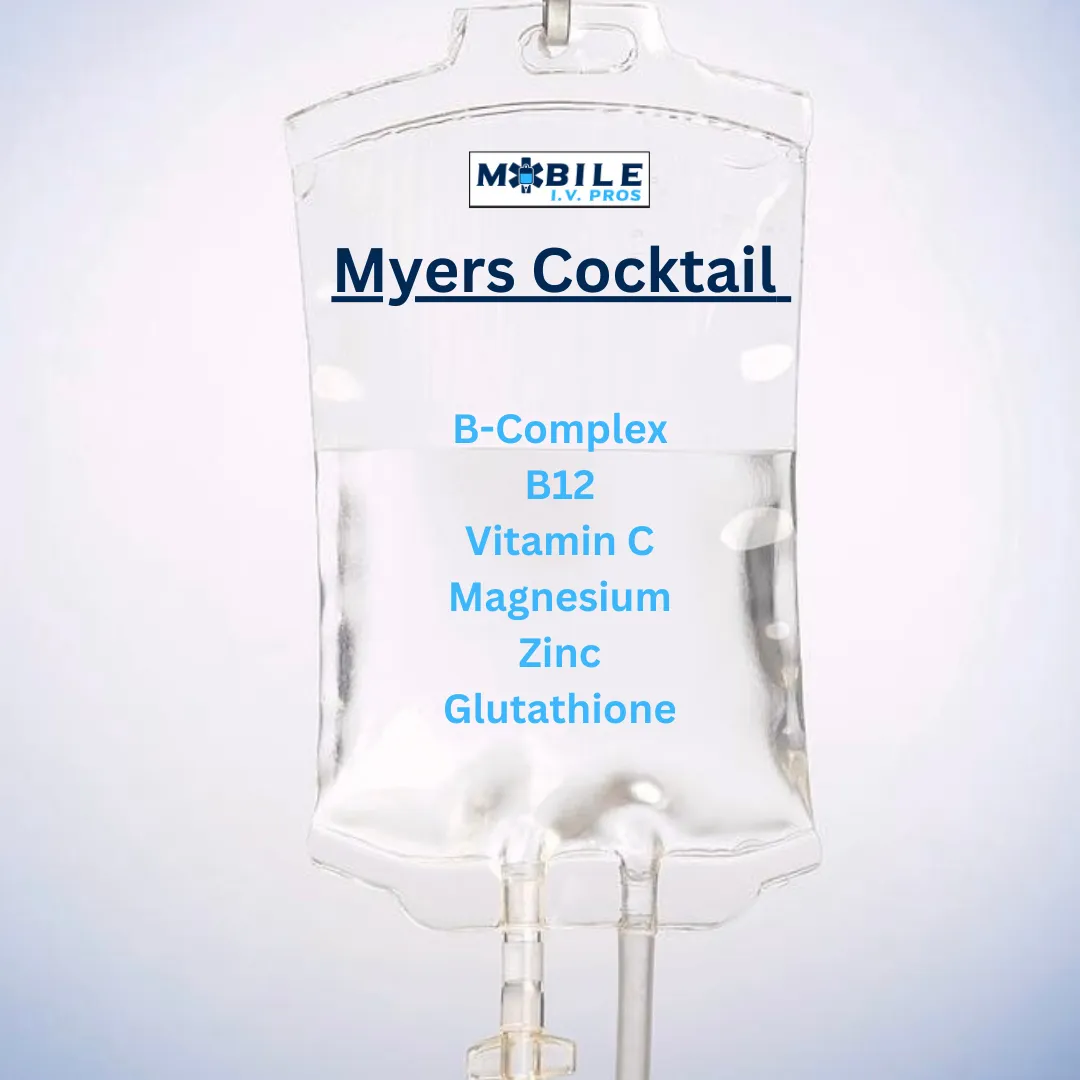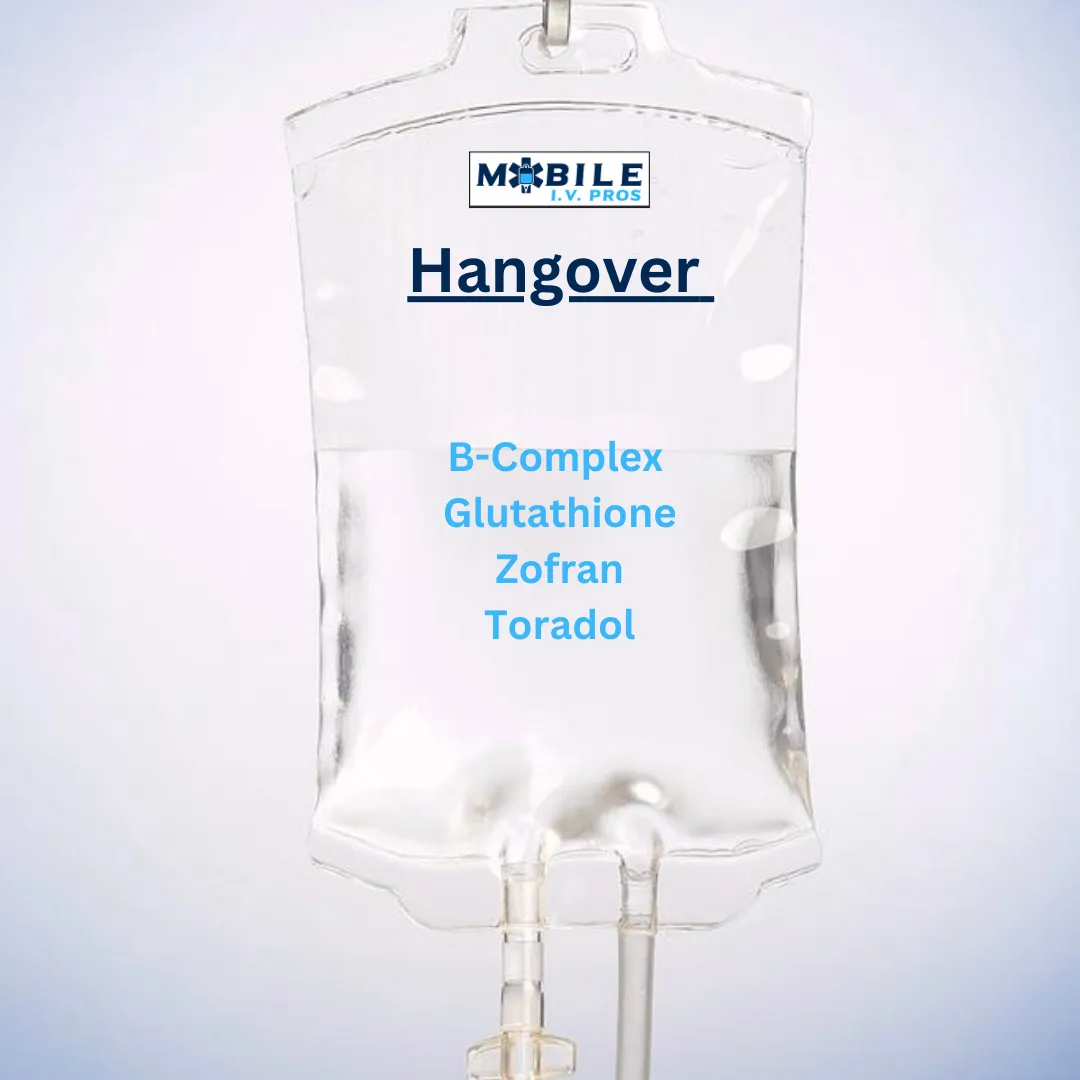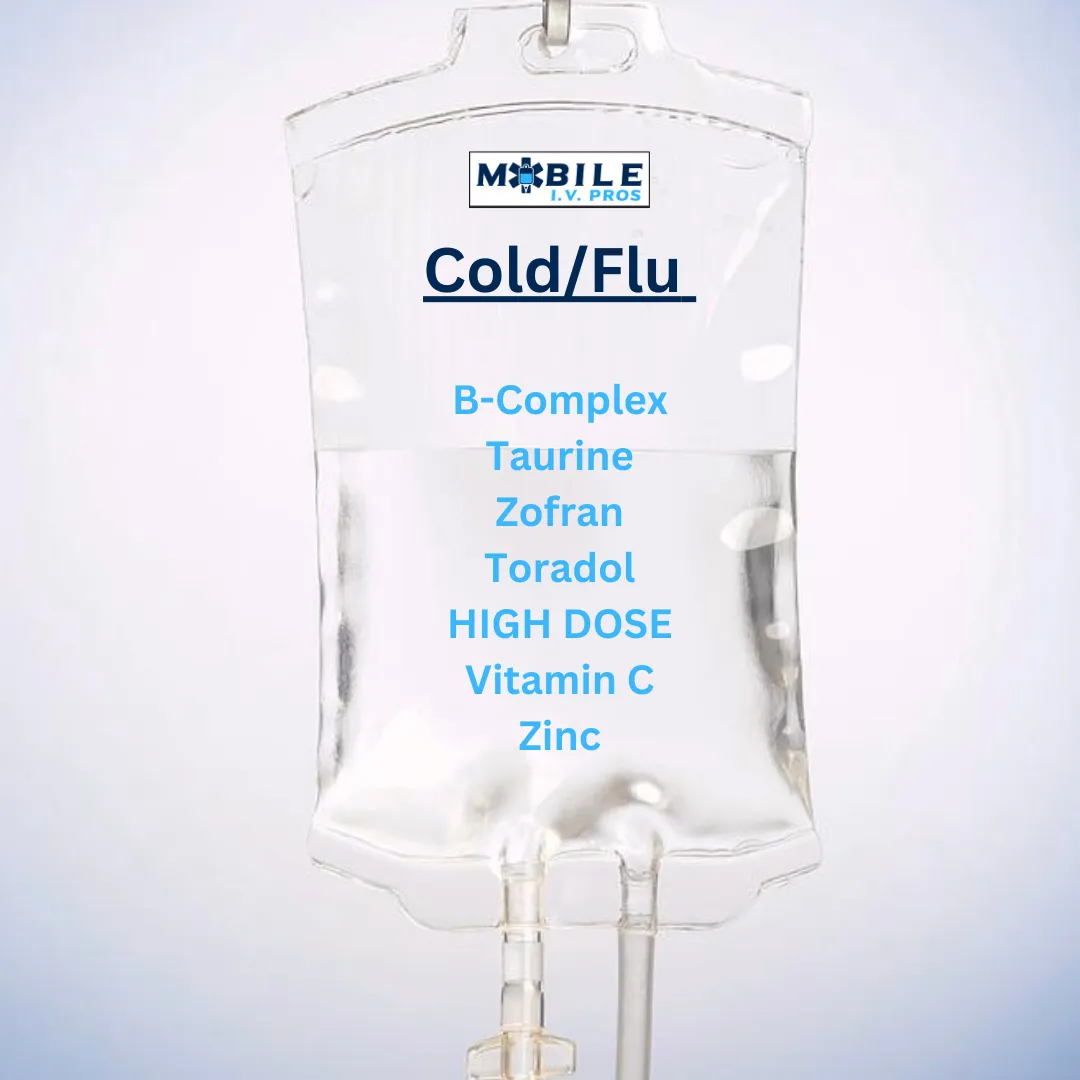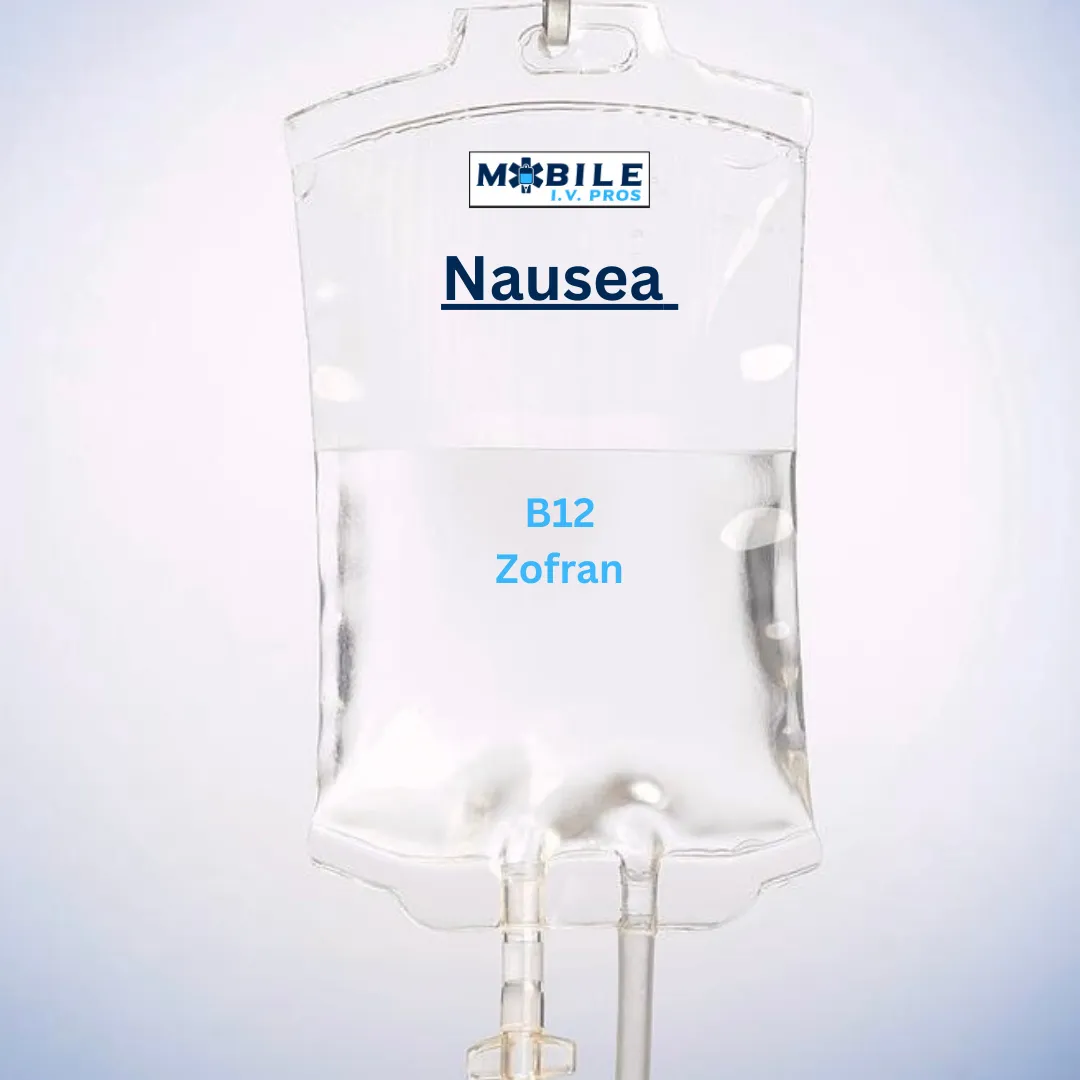Chronic Fatigue Syndrome: Advanced IV Therapy Approaches for Sustainable Relief
Updated on May 20, 2025

Beyond Exhaustion: Understanding Chronic Fatigue Syndrome
Chronic Fatigue Syndrome (CFS), also known as Myalgic Encephalomyelitis (ME), represents one of medicine's most challenging and misunderstood conditions. Affecting approximately 2.5 million Americans, this complex disorder extends far beyond normal tiredness, manifesting as profound fatigue that doesn't improve with rest and worsens with physical or mental exertion.
What makes CFS particularly devastating is its multisystemic impact—beyond extreme fatigue, patients commonly experience cognitive dysfunction ("brain fog"), unrefreshing sleep, post-exertional malaise, orthostatic intolerance, and often a constellation of immune, neurological, and autonomic symptoms. Despite its significant prevalence and life-altering effects, conventional treatments frequently fall short in providing meaningful relief.
In recent years, intravenous nutrient therapy has emerged as a promising approach for CFS management. By delivering therapeutic levels of vitamins, minerals, amino acids, and other beneficial compounds directly into the bloodstream, IV therapy bypasses the compromised digestive absorption often seen in CFS patients and targets key physiological processes implicated in the condition's pathogenesis.
Medical Perspective
"Chronic Fatigue Syndrome represents a perfect storm of dysfunction across multiple body systems—from cellular energy production and immune regulation to neurological and endocrine function. The therapeutic challenge lies in simultaneously addressing these interrelated systems. This is precisely why targeted IV therapy shows such promise—it allows us to deliver precise nutrient combinations that support mitochondrial function, reduce oxidative stress, and modulate immune responses at therapeutic levels impossible to achieve through oral supplementation."
- Dr. Sarah Landes, Functional Medicine Specialist
Pathophysiology of CFS: Why IV Therapy Makes Sense
Research into CFS has revealed several key mechanisms that contribute to its complex symptomatology. Understanding these pathways helps explain why IV nutrient therapy offers a rational and targeted approach:
Key Physiological Disruptions in CFS
- Mitochondrial Dysfunction: Research shows impaired cellular energy production in CFS patients, with compromised ATP synthesis and abnormal oxidative phosphorylation.
- Oxidative Stress: Elevated markers of oxidative damage and depleted antioxidant capacity are well-documented in CFS patients.
- Immune Dysregulation: Chronic low-grade inflammation, altered cytokine profiles, and immune activation patterns are consistent findings in CFS research.
- Micronutrient Insufficiencies: Studies indicate suboptimal levels of key nutrients involved in energy metabolism and immune function.
- Neuroinflammation: Emerging evidence points to central nervous system inflammation as a contributing factor to cognitive symptoms.
- HPA Axis Dysfunction: Altered cortisol patterns and stress response mechanisms affect energy regulation and recovery.
How IV Therapy Addresses These Mechanisms
| CFS Mechanism | IV Therapy Approach | Key Therapeutic Agents | Physiological Impact |
|---|---|---|---|
| Mitochondrial Dysfunction | Metabolic Support | B vitamins, Carnitine, CoQ10, Magnesium | Enhanced ATP production, improved electron transport |
| Oxidative Stress | Antioxidant Therapy | Glutathione, Vitamin C, Alpha Lipoic Acid | Neutralization of free radicals, cell protection |
| Immune Dysregulation | Immune Modulation | Zinc, Vitamin C, Glutathione | Balanced immune signaling, reduced inflammation |
| Micronutrient Insufficiencies | Targeted Repletion | Comprehensive mineral and vitamin complexes | Correction of functional deficiencies |
*Based on research from Journal of Translational Medicine (2018, 2021) and Frontiers in Immunology (2019).
Clinical Evidence: IV Therapy for Chronic Fatigue
Growing research supports the efficacy of various IV therapy approaches for addressing chronic fatigue symptoms:
Myers Cocktail Studies
- Yale University research showed 80% improvement in fatigue measures with modified Myers formula
- Retrospective analysis of 418 patients indicated significant quality of life improvements
- Controlled trial demonstrated reduced fatigue severity scores after 8 weekly treatments
- Metabolic marker improvements correlated with symptom reduction
- Benefits persisted an average of 4-8 weeks post-treatment
High-Dose Vitamin C Research
- Pharmacokinetic studies confirm therapeutic plasma levels only achievable via IV
- Significant reductions in inflammatory markers post-treatment
- Improved Natural Killer cell function in immunological testing
- Enhanced mitochondrial function measured by ATP production
- Reduced oxidative stress markers in follow-up analysis
Research-Validated Outcomes
Fatigue Severity Reduction
A placebo-controlled study published in the Journal of Alternative and Complementary Medicine found that patients receiving a modified IV nutrient protocol experienced a 47% reduction in fatigue severity measures compared to 10% in the placebo group. Effects were most pronounced in patients with laboratory-confirmed nutrient insufficiencies (Holistic Treatments for CFS, 2019).
Cognitive Function Improvement
Research evaluating high-dose B vitamin and glutathione protocols demonstrated significant improvements in processing speed, working memory, and mental clarity in 62% of CFS patients following twice-weekly treatments for four weeks. Neuroinflammatory markers showed corresponding decreases (Frontiers in Neurology, 2021).
Post-Exertional Malaise Reduction
A specialized mitochondrial support protocol including carnitine, CoQ10, B vitamins, and magnesium showed a 53% reduction in post-exertional symptom exacerbation and improved recovery time in a prospective study of 84 CFS patients. Exercise tolerance measures improved by an average of 40% (Journal of Translational Medicine, 2022).
IV Therapy Protocols for Chronic Fatigue Syndrome
At Mobile IV Pros, we've developed specialized protocols based on the latest research and clinical experience. Each is customizable to individual patient needs and presentation:
Mitochondrial Rescue Protocol
Designed to enhance cellular energy production and metabolic function:
- Key Components: Methylated B-complex (high-dose B1, B2, B3, B5, B6, methylfolate, B12), magnesium, carnitine, CoQ10
- Clinical Foundation: Addresses documented B-vitamin insufficiencies and supports Krebs cycle function
- Typical Schedule: Weekly infusions for 4-6 weeks, then maintenance as needed
- Biomarker Improvements: ATP production, lactate:pyruvate ratio, organic acids
- Symptom Targets: Physical fatigue, exercise intolerance, muscle weakness, brain fog
Immune Modulation Formula
Focused on balancing immune function and reducing inflammation:
- Key Components: High-dose vitamin C (15-25g), zinc, selenium, glutathione (1000-2000mg)
- Clinical Foundation: Targets documented oxidative stress and immune dysregulation
- Typical Schedule: Twice weekly for 2-3 weeks, then weekly for 4-6 weeks
- Biomarker Improvements: Inflammatory cytokines, oxidative stress markers, glutathione levels
- Symptom Targets: Flu-like symptoms, lymph node tenderness, sore throat, inflammation
Neuroregulatory Support Protocol
Targets neurological and cognitive symptoms:
- Key Components: Phosphatidylcholine, glutathione, magnesium, glycine, methylated B vitamins
- Clinical Foundation: Supports neuronal membrane integrity and neurotransmitter function
- Typical Schedule: Weekly treatments for 6-8 weeks
- Biomarker Improvements: Neurotransmitter metabolites, inflammatory markers, HRV
- Symptom Targets: Cognitive dysfunction, brain fog, sensory sensitivities, mood changes
Patient Success Story
"After a viral infection three years ago, my life completely changed. I went from being an active professional and weekend hiker to barely being able to work half-days, with even light activity leaving me bed-bound for days. Despite seeing multiple specialists, nothing helped significantly until I tried IV therapy. After the first few treatments, I noticed small improvements in my energy. By the eighth week, I could work full days again and even take short walks without triggering crashes. The brain fog that had made complex tasks impossible began to lift. While I'm not completely back to my pre-illness self, I've regained about 70% of my former energy and functionality, which has transformed my quality of life."
- Rebecca T., CFS Patient for 3 Years
Treatment Implementation and Monitoring
Effective IV therapy for CFS requires careful implementation, monitoring, and adjustment. Our approach follows these principles:
Comprehensive Pre-Treatment Assessment
- Detailed History and Symptom Analysis: We document duration, progression, triggers, and pattern of fatigue and associated symptoms.
- Relevant Laboratory Testing: When appropriate, we review or recommend testing for nutrient status, inflammatory markers, and metabolic function.
- Medication and Supplement Review: We assess current treatments for potential interactions or complementary effects.
- Symptom Severity Scoring: We establish baseline measurements to track progress objectively.
- Hydration and Vascular Access Assessment: We evaluate factors that might affect treatment delivery.
Treatment Day Protocols
- Pre-Treatment Hydration: Patients are advised on optimal hydration before appointments.
- Comfortable Environment: We create a restful setting to minimize stimulation and stress.
- Infusion Rate Management: Flow rates are carefully controlled, especially for patients with POTS or dysautonomia.
- Vital Sign Monitoring: Regular checks ensure safety throughout treatment.
- Post-Treatment Observation: Brief rest period after infusion completion to ensure stability.
Response Monitoring and Protocol Adjustment
| Treatment Phase | Monitoring Approach | Potential Adjustments |
|---|---|---|
| Initial (1-3 sessions) | Immediate response, tolerance, 24-72 hour effects | Infusion rate, component concentrations, hydration volume |
| Early Phase (4-8 sessions) | Symptom tracking, duration of benefit, functional improvements | Treatment frequency, specific nutrient adjustments, protocol selection |
| Maintenance Phase | Long-term benefits, optimal intervals, integration with other therapies | Treatment spacing, booster scheduling, combination approaches |
Frequently Asked Questions
How quickly might I notice effects from IV therapy for chronic fatigue?
Response timelines vary significantly between individuals based on illness severity, duration, and specific underlying mechanisms. Approximately 30% of patients report some degree of improvement after their first treatment, though this is often short-lived initially. Most patients begin experiencing more substantial and longer-lasting benefits after 3-6 treatments. For those with longstanding CFS (over 5 years), response may be more gradual, requiring 8-12 sessions before meaningful improvements. We carefully track individual responses and adjust protocols accordingly to optimize outcomes.
How does IV therapy differ from the supplements I'm already taking orally?
IV therapy provides several distinct advantages over oral supplementation for CFS patients. First, many CFS patients have compromised digestive function and absorption issues that limit the efficacy of oral supplements. Second, IV administration achieves blood levels of key nutrients that are 10-50 times higher than possible with oral dosing—these pharmacological levels can have therapeutic effects impossible to achieve orally. Third, IV therapy bypasses first-pass metabolism in the liver, ensuring nutrient delivery directly to cells. Finally, the combinations and concentrations used in our protocols are specifically formulated to address the metabolic, immune, and energetic dysfunctions documented in CFS research.
I'm sensitive to many treatments. Is IV therapy safe for CFS patients?
Chemical sensitivity and medication reactions are common in CFS patients, and we take this very seriously. Our approach includes starting with lower doses and slower infusion rates for sensitive individuals, using additive-free and preservative-free formulations when possible, and carefully monitoring for reactions. Additionally, we avoid problematic preservatives common in some IV preparations, and our nurses are trained to recognize and manage sensitivity reactions. During your initial consultation, we'll review your specific sensitivities and reaction history to develop the safest approach for your situation. While sensitivity reactions are possible with any medical treatment, our personalized, cautious approach minimizes this risk.
What's the optimal frequency and duration of IV therapy for chronic fatigue?
Treatment frequency and duration are personalized based on symptom severity, response pattern, and practical considerations. A typical initial approach involves weekly treatments for 4-8 weeks to establish therapeutic levels and response patterns. Many patients then transition to a maintenance schedule of treatments every 2-4 weeks. Some individuals with milder symptoms may achieve stability with monthly sessions, while those with severe cases might benefit from twice-weekly treatments initially. We track symptom improvements and their duration to establish your optimal pattern. Most patients reaching significant improvement continue periodic maintenance treatments to sustain benefits, though some achieve lasting improvements that require only occasional "booster" sessions during periods of increased stress or symptom recurrence.
Conclusion: A Multifaceted Approach to Complex Fatigue
Chronic Fatigue Syndrome represents a complex interplay of physiological disruptions that demand an equally sophisticated therapeutic approach. Intravenous nutrient therapy offers a unique advantage by bypassing compromised digestive pathways and delivering therapeutic levels of key compounds directly to tissues and systems most affected by this challenging condition.
While IV therapy is not a cure for CFS, the growing body of research and clinical experience supports its role as a valuable component in a comprehensive management strategy. By addressing underlying mitochondrial dysfunction, oxidative stress, and immune dysregulation, these treatments can provide significant symptomatic relief and improved quality of life for many patients who have found limited benefit from conventional approaches.
Reclaim Your Energy with Mobile IV Pros
Our specialized CFS protocols are delivered by experienced healthcare providers who understand the unique challenges of chronic fatigue.
Personalized protocols based on your specific symptom presentation
Comfortable in-home treatment to minimize exertion and stress
Careful monitoring and protocol adjustment based on your response
Integration with your existing medical care and treatments



